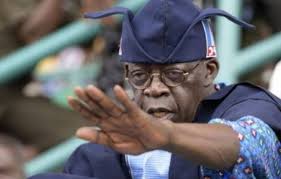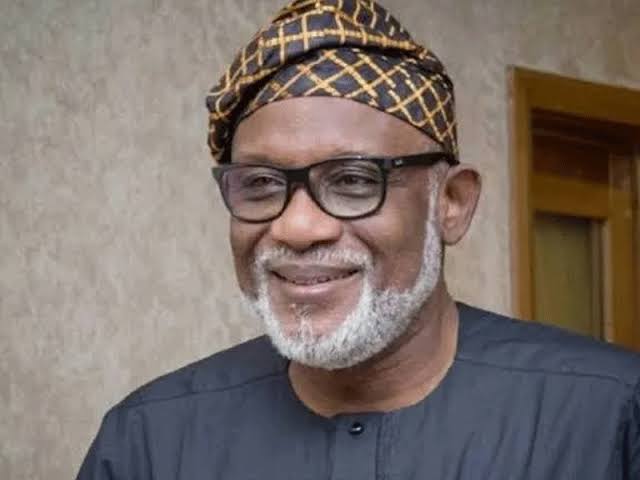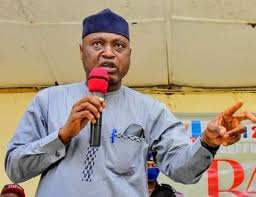Is Tinubu prepared to fight the Nigerian criminal Mafia?

By Femi Kusa
How well prepared are we for six bone-breaking battles in Nigeria’s economy between president Bola TINUBU and business MAFIAS who are sucking the country and us dry? We said in 2015 and 2019 that we wanted change. But that change never came as we expected because president Mohammadu Buhari either didn’t know what change was all about or he was too weak or afraid to wage wars in the economy against MAFIAS that were strangulating the country. That was why many Nigerans were thrilled that president Bola Ahmed TINUBU declared six bone-breaking “wars” in his inaugural speech on 29th May 2023. They saw him as a brave man who knew his way around the economy and who will not give up any battle until, to quote Williams Shakespeare, ” The hurly burly is over, (and) the battle is won and lost”.
Soon, I will outline the “wars”, president Tinubu has declared on troublesome MAFIAS in the economy. I believe the “friendly fires” will be temporary, like the pains of a woman in labour in the labour room and that the end of each battle, like the arrival of a new baby, a bundle of miracle and joy, will bring beautiful, broad smiles on our faces. Meanwhile, we will have to guard our health, because tearing away from the past, like tearing away from an attachment, is not an easy experience. How well we would survive it all will depend on our capacities for adaptation to changing and adverse situations. In nature, all animals adapt to changing environments. We all know the chamelion does this well. The bat cannot fly during the day because sunlight is too bright for its eyes. So, it adapts to night life. I study the snails in the snail cage in my small house garden. When the sun is scorching, they either cover themselves with a protective secretion which calcifies, bouncing back the hot race, or burrow into the soil to hibernate until weather conditions become more favourable. If I wet their habitation or rain falls upon it, they come out of their hiding places and carry on with their lives. Human beings have a higher capacity for adaptation and, worldwide, Nigerians have become well known as one of the most adaptive humans on our earth. Do we not leave a country well bathed in tropical sunshine for terribly cold countries and, nevertheless, adroitly and beautifully survive?
Before I come to the outlines, I wish to advise that all of us, including the president himself, pay more than passing attention to our health. Bitterness over the changing environment in which we live will not solve our problems. It may give us headaches, sleepless nights, hypertension, heart and blood vessel diseases, stroke, heart failure, fear, anxiety and even depression. Do not be suprised if sudden deaths at this time are related to pathological hatred for the man in the driver’s seat, that is the president and whatever are the achievements in the economy he is making. When you hear some people speak, you easily recognise that they have not woken from the slumber of the elections and do not realise or believe we have a new president. President Tinubu will be under severe work pressure . Nerve wracking will be the several meetings he will have to hold in the first hundred days of his Administration to properly establish the vision and to guard the sail. The soup plate receives the soup in its bowel, not on its buttocks, a Yoruba addage says. This will make him need brain and nerve food supplements. He will need to avoid heavy meals because they will drain more blood to the stomach and intestine and leave less for the brain, the eyes, the ears and the nerves which will be under severe pressure at this time. I do not know what his diet is like. He and his chef may wish to advise themselves of what astronauts eat in space, where no cooking is done , and they return to the earth often fresher and as energetic as they left it.
MAFIA WARS
I anticipate six mafia wars in the economy.
1)The subsidy mafia may exploit temporary hardships to forment trouble that will get the President off its back, and return the nation to subsidy days. Already, the Nigerian Labour Congress (NLC) has brought a bird out of its pocket. Time will tell on which side it stands. The President has explained his own vision. What is the NLC vision for generating income to service national debts, raise salaries and wages, while economic development is simultaneously funded? Or is it merely rabble rousing, playing to the gallery? Is the NLC unaware of the Petroleum Industry Act ( PIA) which forbids subsidy? Where was the NLC when former President Mohammadu Buhari was signing the Petroleum Industry Bill ( PIB) into law? Why is it now crying wolf when the law is running its course? Does the NLC want President Tinubu to break the law? Is the NLC unaware that the NNPC over imports refined petrol and that the excess is exported by marketers to West African countries for humongous profit, subsidising petrol in these countries at the expense of Nigerians? What the NLC should do is give us its own counter plan for funding the economy. We should examine both and decide on which is better. In a general nationwide strike, many persons the NLC claims to be defending may die because there may be no doctors in hospitals. There may be no foodstuff in the market. The banks may close, and there would be a worse cash squeeze than Emefiele’s cash squeeze. There may be no money in the pockets of people who live by the daily income. Robberies may erupt. Are these and more like them what we want? Former president Obasanjo who had not left any president who succeeded him in peace must be lurking around in the shadows for a pound of President Tinubu’s flesh. Tinubu has outclassed Obasanjo as a politician on no fewer than three serious occasions. Obasanjo is unlikely to give up another fight with him. To the mafia, human blood is like water and human life like chicken life when it comes to protecting their interest, irrespective of whether the members are top dignitaries in the Church or in the Mosque.
2) A single foreign exchange market ordered by the president will eliminate the black market, affect its operators. At bedtime everyday and on rising in the morning, will they pray for their ouster in the economy? What about Nigerians abroad who send token foreign currency home in exchange for humongous sums in naira with which they are striving to gain a better and stronger foothold in the economy, investing especially in real estate, the sub sector which hardly depreciates? They may not like appreciation of the naira. So will Central Bank and commercial Bank officials who round trip foreign currency to the currency black market.
3) The Chinese who export electricity generators to Nigeria, like Nigerian business men in this market, including former Presidents who are said to own electricity distribution companies, will not enjoy the President’s moves to double electricity production and stream line the industry
4.The Chinese and the Indians will not enjoy the President’s plans to bring back the marketing boards. They are involved in illegal mining and export of solid minerals, and in purchasing produce and other raw materials from hinterland farmers at rediculous peanut prices. The marketing boards will legally displace them and pay farmers better. The Chinese, in particular, are eyeing Africa for settlements for their excess population, and are quietly achieving this in Nigeria. They come into Nigeria, looking Haggard and hungry. They do all businesses poor Nigerians do, including sewing and selling of Yoruba AGBADA and SOKOTO and, in no time, begin to look robust and healthier. How will the Chinese and the Indians respond to the marketing boards?:
5). Nigeria’s security architecture will be reformed as part of “institutional reforms”. This will involve many decisions including stoppage of the theft of crude oil for illegal export. Will the mafia like it?
6) One million jobs are coming into the digital economy for young persons. But it may derail “old cargoes” who may be unable to cope with the technology of artificial intelligence.So, one job may come several may go.
OIL SUBSIDY
Arguments for the abolition of oil subsidy are simple. Nigeria spends 96 percent of its national income to service its national debt. This leaves only four percent of the national income for maintaining the economy and for developing it or making it bigger. But what can four percent of the national income do? Infrastructure are to be built. Salaries and wages are to be paid. The labour unions are asking for bigger national minimum wage. Doctors,like university teachers, soldiers and policemen, other uniformed forces, even civil servants, are asking for more pay. Children are to be kept in school. Security, of life and property, is down. Electricity failure is rampant. Hospital equipment and services are obsolete. The Nation is training doctors and losing them to other countries. Nurses and information technology folks are leaving as well. Crude oil is stolen from pipelines and shipped abroad. Where are the security forces? The crude oil refineries have been incapacitated for decades. So, we have to ship crude oil abroad at huge transport and insurance cost, refine it abroad and bring it back home . The difference in the cost of crude refined at home and the crude sent abroad and brought back is what vampires in the oil industry call subsidy, to stabilise pump price as if nothing happened. But why could the refineries not be fixed? Is it not because the ants which eat up the vegetable is right in the root stalk of the vegetable?
When former President Mohammadu Buhari was ill in a foreign hospital, former Vice President Yemi Osibajo tried to solve the national income problem before it got this bad. As acting President, he went round the country and approved modular refineries, since it appeared Nigeria was unwilling to make its old and dysfunctional refineries to work. Modular refineries held great hope for the abolition of petroleum subsidy and freeing whatever money was involved for other uses in the economy. Without elaborate refineries, the Ibos refined crude oil during the Nigerian civil war , using crude machinery. Many people were also “illegally” refining crude oil along the coast line in the Buhari days. Osibajo’s approval of the modular refineries was greeted with jubilation. But as soon as Buhari returned to Abuja, hail and hearty, he àbolished Osibajo’s approvals, perhaps under captivity of the mafias of which his wife, Aisha, once publicly warned him.
The argument over whether there is subsidy or if subsidy is a scam must be over 30 years old. Today, subsidy is estimated at about 400 billion naira every month. I recall my days as Editor of the GUARDIAN newspaper from (1988 ). Mr Lade Bonuola was the Editor in chief .Doctor Stanley Macebu was Managing Director and Dr Tunji Dare, Editorial Page Editor. At different times, Dr Macebuh and Dr Dare were Chairman of the Editorial Board. A recurring decimal in the newspapper’s editorial opinion before I left in 1999 as the Director of Publications/Editor-in- Chief was the question of whether subsidy existed in the pump price of petrol. The Guardian always took the position that none existed. Whenever the Guardian lit the fire, the NNPC would attempt to douse the storm in the public place through attempts to shift opinion on its side in other newspapers. Soon, the NNPC penetrated the Guardian’s editorial board and would have gotten away with it but for the alertness of Dr Dare. In one of his pro-subsidy campaigns, the NNPC generated an article which it forwarded to its friends and subsidy believers in many newspapers. On The Guardian, the opinion of an editorial board member may be different from that of the newspaper and was sacrosanct. This meant that the chairman of the Editorial Board or the editorial Page Editor could not reject it except on the grounds of poor grammar, potential to cause public disorder, defamation, libel or sedition potential etc. So, the NNPC article in reference could have easily sailed through The Guardian as a favourable counter opinion to the newspaper’s anti-subsidy opinion. Dr Dare discovered that the article he was editing was a word- for-word replication of the same article he had read in other newspapers under the names of different authors. So,the NNPC had planted the article on the newspaper industry and on the Guardian. Doctor Dare threw the article out of The Guardian. The purpoted author was a visiting member of the editorial board from the university of Ibadan. He protested to the highest authorities the spiking of his opinion article, claiming the right to be different from the newspaper. For a while, ethnicity was read into Dr Dare’s decision. But all dowse cleared when it became clear that the NNPC may have bought over the author. Accordingly, he honourably resigned his appointment .
The NNPC has not relented since then in telling the succeeding government, including president Buhari’s, to subsidise the pump price of petrol which, every year, runs into trillions of naira debt the government owes the NNPC. The irony here is that Nigeria’s economy depends on crude oil sales to the tune of more than 90 Percent. The NNPC sells the crude, removes its overheads and gives the rest to the government to run the economy. But when the NNPC always sells below it’s cost profile to the public using its profit as subsidy, there is nothing left to give the government. That was why the NNPCL, now a limited liability company, will announce recently that the Buhari government owes it thrillions of naira in debt. Now, what does president Bola TINUBU do in this circumstance? Carry on as usual, Incurring humongous foreign debts like president Buhari to repay old debts and manage to build some infrastructure, or courageously break the old cycle, part ways with it and restart the Nigerian economy on a healthier footing? Some critics have said he should not have announced subsidy abolition without first discussing it with stake holders. Is he expected as a general going to war to first declare to enemies of his country his intention to wage wars on them and even announce the date and time? That would be foolish. General Ibrahim Babangida as military president did that in respect of Nigeria’s naval assault on Monrovia to protect the delapitating government of Samuel Doe against invading rebel Charles Taylor. I was shocked when I heard the pre invasion alert from Mammam Yusuf, then Chief Press Secretary of the Chief of General Staff (CGS) Augustus Aikhomu during an Editor’s briefing at Doddan barracks, then the seat of power in Lagos. This was because one of the first lessons in journalism is that troop movements are never revealed. The Nigerian navy did not land in Liberia as announced. Charles Taylor moved in ahead of the landing, captured many of the Nigerians who took refuge in the Nigerian embassy, including The Guardian’s Krees Imodibie and the champion’s Tayo Awotusin, and killed them in reprisal for the expected invasion. Has the old style of prior discussions with the oil mafias not brought the nation on its knees thus far? Who will be told he or she is to be beheaded and would not like to do something about it?
President Tinubu must have his game plan. I believe modular refineries are coming. Former Vice President Yemi Oshibajo saw the modular refineries as a possible answer to the subsidy suffocation. That was why, as Acting President, he approved some of them when for abroad.
The battle over petroleum subsidy is the battle over who, between president Tinubu and the petroleum industry mafia, will keep N400 billion he is taken away from them every month. His inaugural speech promised institutional reforms. My understanding of this is that all institutions of state must change their ways and means to fit into a new order. The oil industry mafia returned the fire. The bottom line of this battle is: Should a few thousand Nigerians keep this money or should the government pump it into public projects with multiplier effects? The mafia shot itself in the foot. The president said oil subsidy will go from July. But the fuel stations began to shut down or to hoard petrol or to sell five times above official price from 29 May , one clear month away from July. So, the president met them on their own turf by resetting the timing to one month backwards and beating them in their own game. For the opposition parties which are still seeking relevance in the political space, the long fuel queues and the financial pain of public bus users has provided opportunities to knock the president, as if they, too, did not promise an end to petroleum subsidy during the campaigns. It is interesting, though, that the public saw through the scenarios and squarely blamed petroleum marketers for gluttony and mischief.


